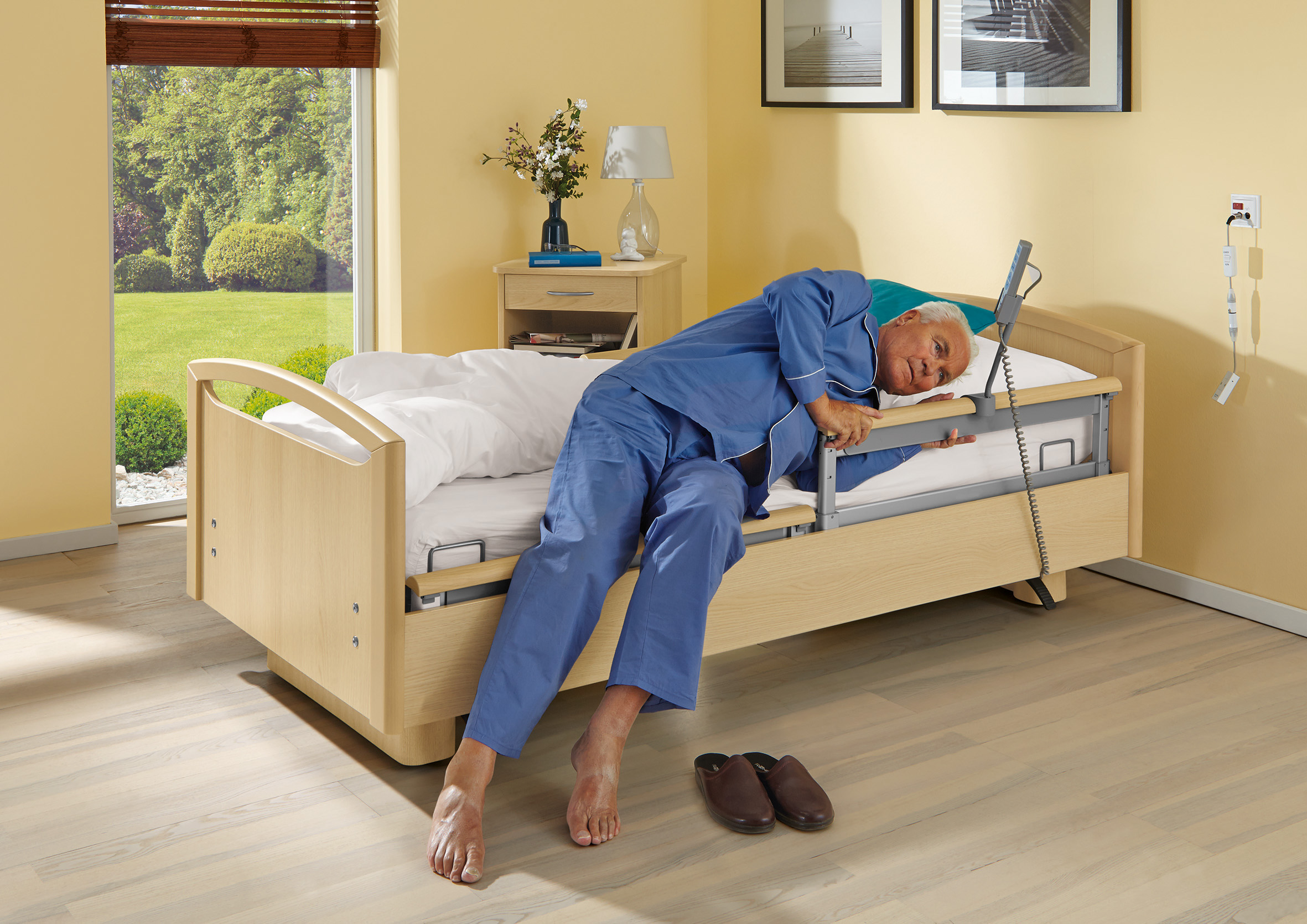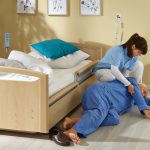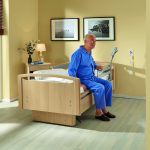How to protect non-custodial residents from themselves and from falls
The purpose of custodial measures is to protect people suffering from dementia in particular. They should not mess with other residents, they should not fall or otherwise injure themselves. It is well known that
custodial measures are only permitted in individual cases and otherwise violate human rights. You can read here what nurses can do:
Maintain physical fitness
People who only lie down or who move too little overall reduce muscles. This increases the probability of falls or injuries. But if you regularly do gymnastics, train your balance or go for a walk, you can more easily absorb yourself and also reduce your potential for aggression and stress. The connection between physical fitness and falls can be found in the DQNP Expert Standard for Fall Prevention. Keeping senior citizens mobile therefore has the double effect of preventing
custodial measures. Numerous studies also point out that fixations, bed rails and chairs with integrated tables often lead to injuries in the first place. Nor are these measures suitable for calming a person suffering from dementia, but they are much more likely to increase discomfort.
Securing the environment
Seniors also perform less and less mentally as they get older. They are no longer able to assess dangers such as stairs and thresholds so well. It is therefore important to clearly mark sources of danger. Good lighting and handles in the bathroom and hallway also help to minimise dangers. In the appropriate BZgA brochure, carers can read up on how they can prevent falls by taking simple measures. But one thing is certain: anyone travelling in a safe environment does not need a restraint to prevent injury. Look for alternatives to drugs that increase the risk of falling or otherwise make you dizzy. Have automatic door openers installed if heavy fire doors are involved. If the room doors are individually designed, dementia sufferers will find their room more quickly instead of walking around the house without orientation.
Use aids
Patients walking around the house should walk on non-slip, flat shoes. The Thuringian Guide to Avoiding FeM contains tips like this: Make sure that those affected are equipped with suitable glasses and walking aids. In dangerous places, fall mats can reduce the impact. Technical aids such as smoke detectors, stove fuses or water regulators can also protect against injuries. Senior citizens with dementia should not have access to dangerous objects such as lighters, cleaning agents or knives. Think about protective clothing, such as hip protection pants, if the resident cannot be prevented from wandering around at night.
Further training for nursing staff
Sedating aggressive and restless people with medication or behind locked doors is not a solution. If you deal with the subject, you can analyse behaviour and satisfy a need before the well-groomed person freaks out. Seniors with an urge to move, for example, need a walk in the garden and those who are afraid of the dark often get along well with a night light. Dementia sufferers who are bored also become aggressive and restless. So carers should find out the cause and remedy it to avoid custodial measures.


